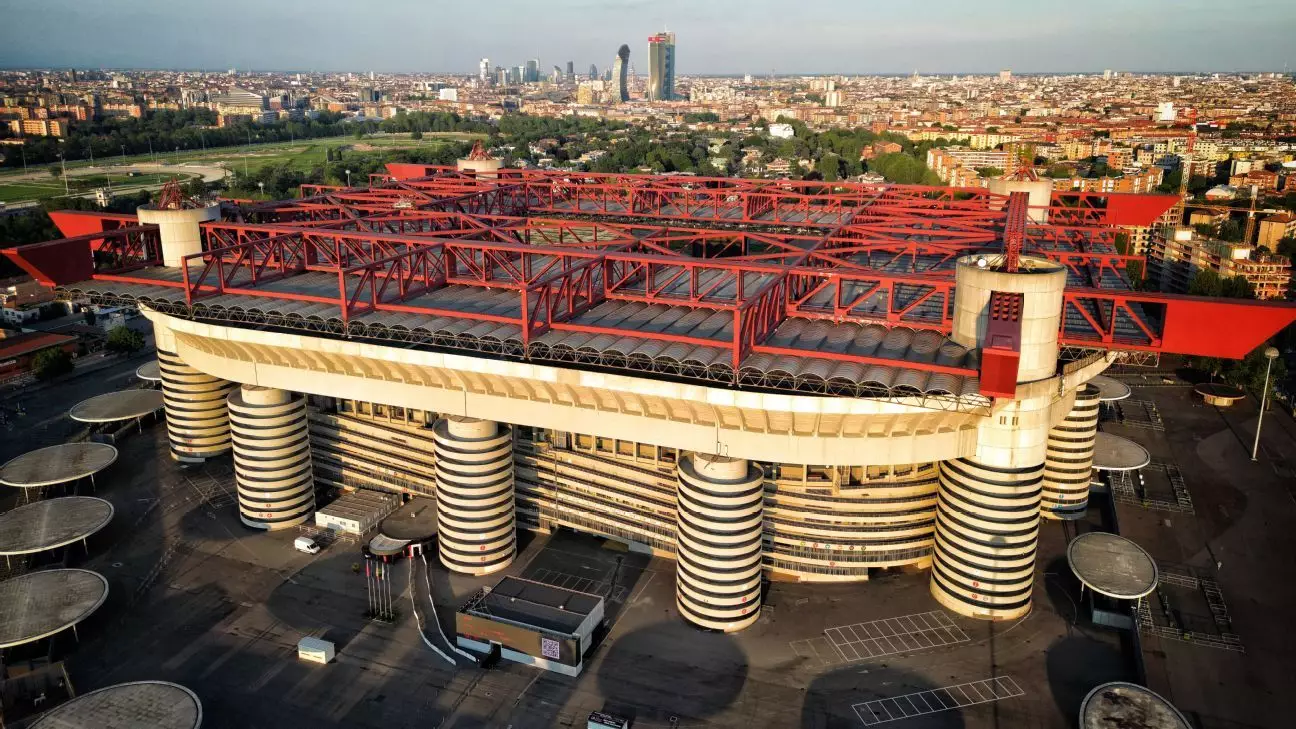In a surprising turn of events, UEFA has reopened the bidding process for the 2027 Champions League final after Milan’s San Siro Stadium was stripped of its hosting rights. Initially earmarked as the venue for the prestigious final, the San Siro—home to two of Italy’s most storied clubs, AC Milan and Inter Milan—last witnessed the grand spectacle in 2016, when Real Madrid triumphed over Atlético Madrid in a dramatic penalty shoot-out. This recent decision by UEFA spotlights the intricacies of stadium management and the evolving landscape of football infrastructure in Europe.
Uncertainty Surrounding the San Siro Stadium
The situation surrounding the San Siro is increasingly precarious. Back in May, UEFA announced Milan as the host city for the 2027 final alongside Budapest’s Puskás Aréna, which is set to host the 2026 final. However, the announcement came with a significant stipulation: the Italian Football Federation (FIGC) needed to provide comprehensive details about a proposed multi-million-pound refurbishment of the historic stadium. With mounting concerns regarding funding and the prospect of Inter and Milan potentially relocating due to the logistical hurdles surrounding renovations, the future of the San Siro has never been more uncertain.
The San Siro, an iconic establishment that opened its doors in 1926, serves as a symbol of football passion in Italy. Yet, the club’s desire for modernization clashes with financial realities, leading to a potential demolition of the beloved stadium if funding cannot be secured for renovations. The ultimatum put forth by UEFA reflects a broader issue: the need for venues capable of meeting modern standards while honoring their historic legacy.
The decision to strip Milan of hosting rights follows a thorough evaluation by UEFA’s Executive Committee. It was concluded that the Municipality of Milan could not guarantee that refurbishment projects would not disrupt the atmosphere surrounding the final in 2027. As a result, UEFA’s announcement confirmed the necessity of opening the bidding process to potentially more viable cities. In an official statement, UEFA emphasized the importance of stability and certainty in event hosting—a clear message to future bidders who hope to welcome one of football’s crown jewels.
With Munich’s Allianz Arena already slated to host the 2025 final, and bids from Budapest and Milan for the successive finals, UEFA is sending out a call for interest to cities that may not have initially considered hosting the prestigious event. This could reshape the landscape of European club football by inviting new contenders and pioneering venues into the fray.
As discussions surrounding the locations for the finals continue, anticipation builds around which cities might enter the bidding war. Not only does this open a window of opportunity for various European cities, but it also raises questions about legacy, accessibility, and fan engagement in potential venues. Will cities rise to the occasion, presenting innovative solutions and world-class facilities? UEFA aims to finalize the hosting location by May or June of 2025, making it a pivotal moment for European football.
The implications of this shakeup are profound. Not only does it force a reconsideration of the venues that will host UEFA’s foremost competition, it also highlights the balancing act required to blend tradition with modernity in sports architecture. As cities prepare to compete for the honor of hosting the 2027 final, one thing is certain: the narrative surrounding football’s most prestigious club tournament continues to evolve, driven by ambition, legacy, and the ever-present quest for excellence.

Leave a Reply